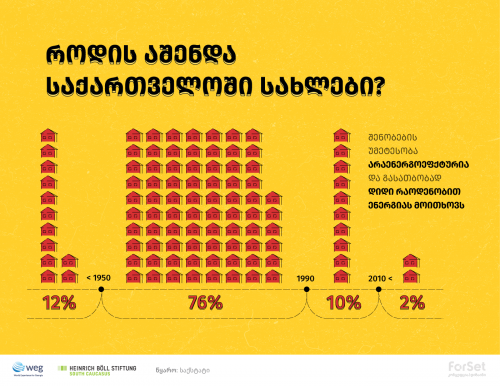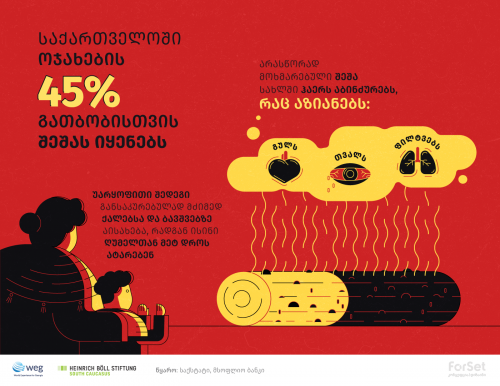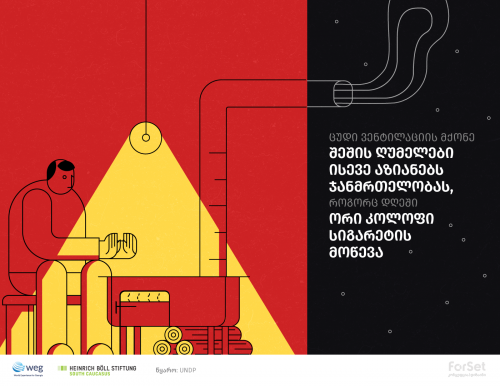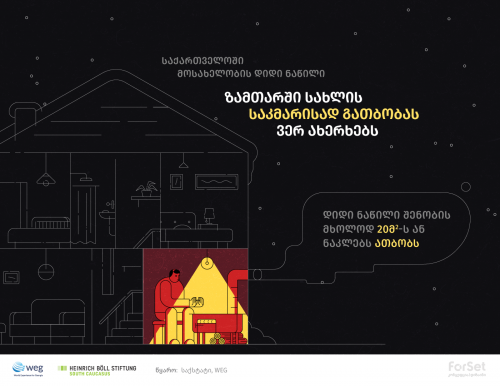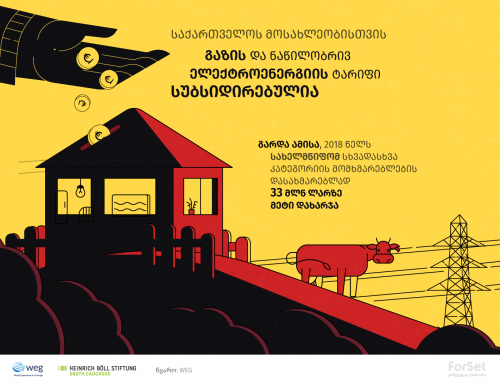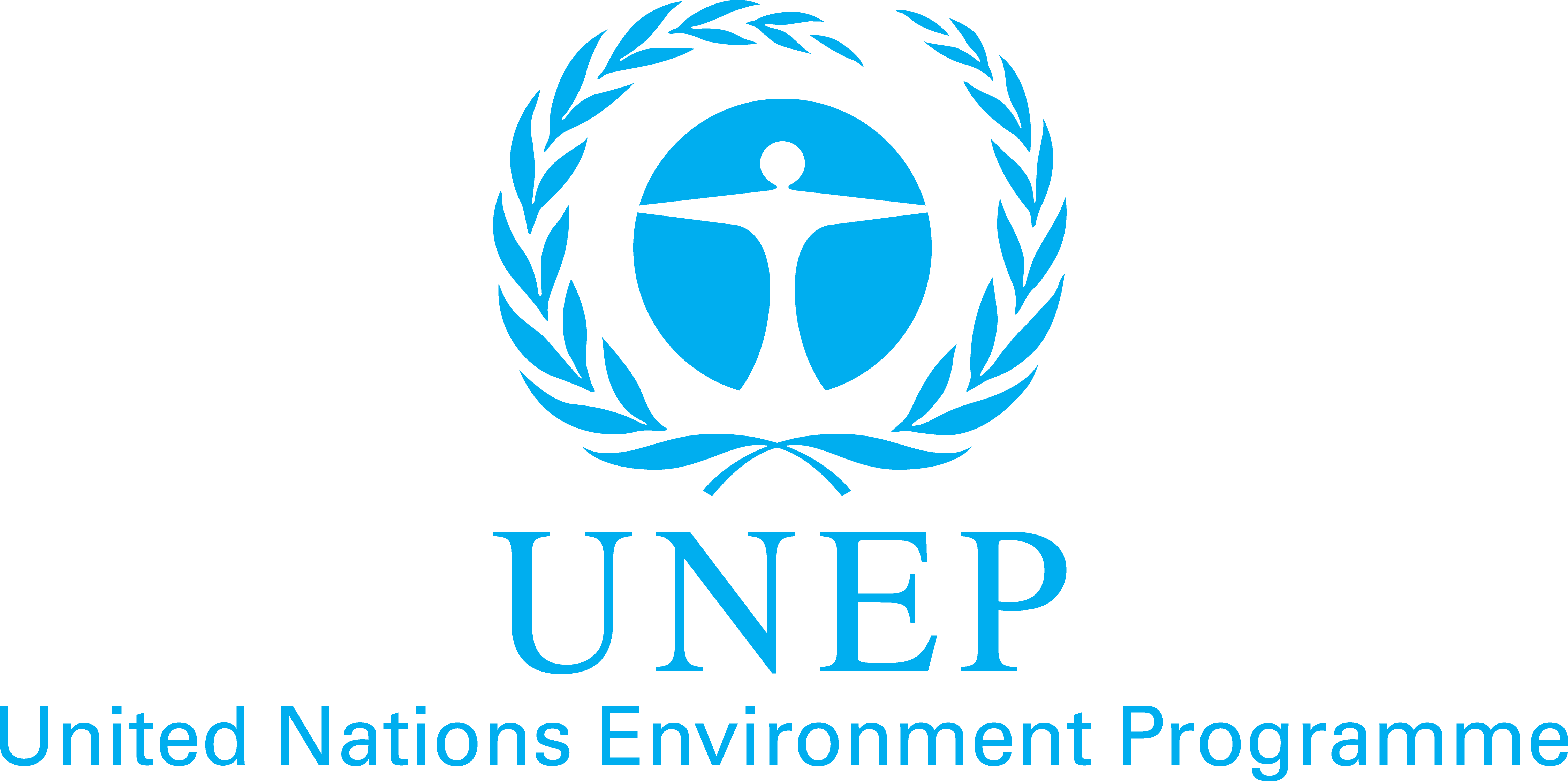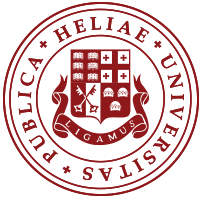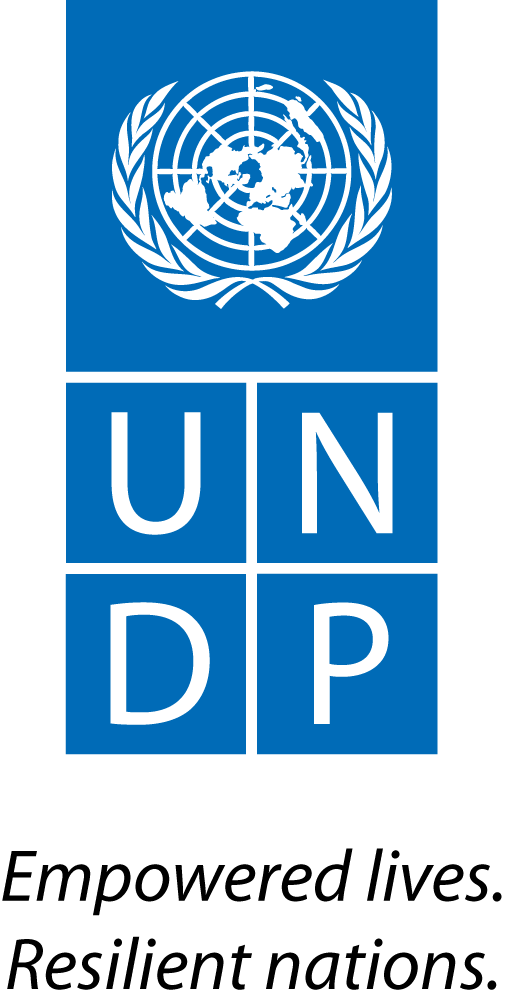Energy Poverty and Vulnerable Consumers in Georgia
Study presented by WEG on December 13, 2018 reveals, that Energy Poverty is important problem in Georgia.
Energy Poverty refers to a situation, when individuals or households are not able to adequately heat or provide other required energy services in their homes at affordable cost.
The study results show, that 99% of Georgian population has access to electricity and 68%-to gas, however, almost half of the population uses fire wood for heating and cooking, wood is often used in inefficient wood stoves that has negative effect on health.
Share of energy expanses in total household expenditure is 12%, however, energy expanses significantly differ among seasons. Energy expanses are twice as high in winter as in summer. It has also to be considered, that most of the population does not fully heat their homes in winter and energy tariffs are not high in Georgia.
One of the major driver of energy poverty is low energy efficiency of buildings. According to the statistics, most of the buildings were built during 1950-1990 years in Georgia and their thermal characteristics are poor, which leads to low energy efficiency and low level of comfort.
Energy poverty drivers are related to factors, concerning climate, energy access, distribution network security, buildings energy efficiency, income and other aspects, thus addressing it requires multiple actions to implement and long term strategy development.
At first stage, it is important to state, that energy poverty elimination is one of the major goals of energy policy. It is recommended to state in the draft energy low that the Ministry of Economy and Sustainable Development should develop energy poverty definition and create strategy to eliminate it.
Energy policy should guarantee, that Georgian population has access to clean, secure, reliable and affordable energy services. Based on this, the following definition can be used: energy poverty is a situation when households do not have access to electricity or cannot provide other required energy services in an uninterrupted, secure and reliable manner at an affordable cost.
Awareness razing of households about energy poverty and energy efficiency is also an important issue. In the rural population, special emphasis should be made on health risks caused by open fire and inefficient wood stoves. It should be highlighted, that fore wood consumption cannot always be considered safe. This is especially important for women, who are responsible for cooking and care work at home and are at risk of indoor air pollution more often than men.
The research was conducted with support of Heinrich-Boll stiftung South Caucasus
